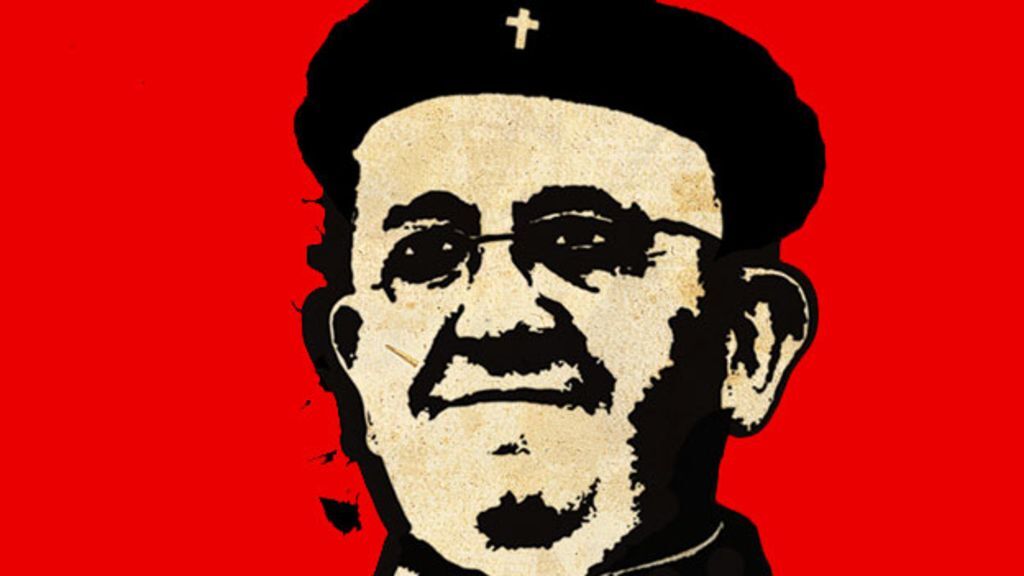
In order to understand salvation, one must be able to have some concept of sin. Sin is not limited to something that someone does outwardly, like lying or stealing, but includes our disposition, where sin subsumes our thoughts and mind as well. The definition of disposition is the inherent qualities of someone’s mind and character. Basically, when we pull back the layers of what we believe makes up our identity, we are left with our internal disposition.
A Biblical model of sin primarily takes into account original sin (Rom 5:12-19), or inherited corruption that consists of the imputation of Adam and Eve’s sin onto the rest of humanity. In 1 Corinthians 15:22, Paul not only reinforces the concept of imputation of original sin when he writes, “as in Adam all die, so in Christ all will be made alive”, but he also informs that the opposite effect of being “in Adam”, which leads to death, is being “in Christ”, which leads to life. A succinct definition of sin is any lack of conformity, active or passive to the moral law of God, whether matter of act, thought, or inner disposition[52].
The Bible has a variety of characterizations of sin that include unbelief, rebellion, perversity, missing the mark, lack of integrity, absence of righteousness, transgression, and treachery[53]. There are also consequences for sin, which include restlessness that comes from wickedness, becoming evil, guilt, and bringing trouble on oneself[54]. The effects of sin include becoming enslaved to sin (Romans 6:17), the inability to face reality or suppression of truth (Hebrew 9:27, Romans 6:23), blatantly denying sin that either comes in the form of being unwilling to admit wrongful actions or not taking responsibility for one’s actions, in other words, shifting blame, (Gen 3:11-12), which started with humanity’s first parents. Self deceit (Jer 17:9), insensitivity (1 Tim 4:2, Rom 1:21, Matt 12:24), self centered-ness that calls attention to our “good” qualities and accomplishments, minimizing our shortcomings, along with self righteousness that compares ourselves to others (Luke 18:9-14), are ALL effects of sin.
The effects listed above and the consequences of sin lead to humanity’s inability to connect and establish healthy and Godly relationship with others. Competition (James 4:1-2), lack of empathy (Phil:2:3-5), rejecting authority and an inability to respond to the welfare of others, or lack of love, shows the far reaching impact that sin has on the world.
It is important to differentiate that there are natural human desires that have the potential to expand the effects of sin into our families, our relationships and humanity overall, but, in and of themselves, are not inherently sinful.
For example, the desire to enjoy things, like our babies, our families, or our spouse, are blessings to enjoy because they are gifts from God and to enjoy them is not sinful.
The desire to obtain tangible goods through sacrifice and self discipline is not considered sinful.
The desire to achieve, via a healthy work ethic that can potentially lead to a job promotion or earning a degree that can improve one’s social standing should not be viewed as sin.
Though these desires are not sinful, when they become lusts of the flesh, lust of the eyes (greed), and the pride of life, which is taking pride in one’s ability to accomplish (1 John 2:16), these desires can give birth to sin that not only effect an individual person but can also cause one to sin against others, which can be described as relational sin, familial sin, and social sin.
Ignoring personal, relational, or familial sin, liberation theologians will exclusively magnify social sin as the root of various forms of social injustices, while also embracing the ideology that various aspects of social sin has wide social dimensions that require a distinct theology to understand and “liberate it”[55].
The absence of fellowship with others is also considered a social sin in that it is assumed that it lacks love in relationships, and includes a breach of friendship with God and others[64]. It is also believed that sin exists in oppressive structures or systems that exploit others, oftentimes due to “race” or class. In order to alleviate this kind of oppressive social sin, liberation theologians will look to the humanity of Christ, Christ from below, as the means to offer a radical liberation that looks to political means to alleviate it.
According to liberation theology, social sin is the only sin that matters since it is believed that an unjust situation does not occur outside of human responsibility[56]. Social sin is often described as structural, systemic, or institutional and fails to take into account original sin and its implications, or rather, parses out a slim understanding of the effects of sin. Liberation theology affirms that social sin is created when structures “are rooted in personal sin and are always linked to the concrete acts of individuals who introduce these structures, consolidate them, and make them difficult to remove, and requires the grace of Christ to penetrate this root”[57]. In liberation theology, personal redemption for individual sin is not enough to change society. Social sin is considered a historical fact that has “collective dimensions” and evident in “oppressive structures” that demand liberation that is radical, which they believe is a gift that Christ offers humanity and includes political and historical liberation[58].
Liberation theology advocates believe that society needs to be reformed by political channels for the purpose of legislating evil, making it illegal[59] to exhibit any form of evil that society determines evil, which changes according the whims of culture at any given time, meaning what is considered evil is fluid. When societal and cultural evil is legislated, there is an assumption that society will improve and desirable societal conditions will help humans flourish. Society as a whole is believed to have a reality, or heartbeat, of its own and is separate from individual members of that society[60], in so much, that in order for change to occur, societal structures, systems, or institutions need to be reformed, overhauled, or legislated.
If reform does not solve the issue of structural or systemic sin, the next step is revolution, which involves removing the system, sometimes by force, to replace the structures of the status quo because there is a belief it is corrupt, irredeemable and cannot be transformed[61]. Forced revolution is a Marxist feature, further solidifying the ties that liberation theology has with Marxism. Without a basic understanding of the doctrine of original sin, one will not be able to see that original sin is solely responsible for a corrupt society and is the root cause for humans to behave in sinful and evil ways. Without that basic foundation of sin, another belief will emerge that will shift blame onto something other than the sinful disposition of an individual person. The blame will be placed on corrupt systems or institutions and it is believed that if they are removed, humanity has the ability to thrive on its own. When society views structures or systems as culpable for human suffering and the existence of evil, once that system is no longer in place, it is erroneously believed that new leaders will emerge that will genuinely look out for the interest of others[62].
A liberation theologian’s view of sin does not include the necessity for one to have spiritual redemption and transformation that can only be achieved by God in Christ (Hebrews 8:6-13). Scripture informs us of what that transformation looks like (new hearts and minds) and who is responsible for the transformation (God alone).
Ezekiel 11:19-20 And I will give them one heart, and a new spirit I will put within them. I will remove the heart of stone from their flesh and give them a heart of flesh, that they may walk in my statutes and keep my rules and obey them. And they shall be my people, and I will be their God.
Ezekiel 36:26-27 And I will give you a new heart, and a new spirit I will put within you. And I will remove the heart of stone from your flesh and give you a heart of flesh. And I will put my Spirit within you, and cause you to walk in my statutes and be careful to obey my rules.
Jeremiah 31:33 For this is the covenant that I will make with the house of Israel after those days, declares the Lord: I will put my law within them, and I will write it on their hearts. And I will be their God, and they shall be my people.
Unfortunately, adherents of liberation theology, as well as those who pull from the various contemporary social gospels, to include the ones who seek to use analytical social tools to interpret sin, have an insufficient view of sin. They will often attempt to challenge the order of society by strictly taking into account social and historical realities[63]. It becomes clear that liberation theology grew out of the tenets of Christology from below, which exclusively takes into account the historical or earthly experiences of Jesus. Liberation theologians warp, misconstrue and minimize the magnitude of personal individual regeneration and do not seem to comprehend that society cannot be saved by treating society[69] .
Society is solely influenced by the individual members that make up society, which includes their individual biases, individual dispositions, wills, minds and hearts. Society has the “potential” to be changed one elected saved soul at a time and can only occur when God regenerates a person on a very intimate and personal level, meaning genuine individual faith in Christ is the only means that society has for change.
Liberation theologians, as well as professing Christians who attempt to use critical race theory to explain social sin fail to take into consideration human depravity and all the implications of individual personal sinfulness. Though they are hyper focused on the collective effects of sin, they do not realize that reforming societal circumstances have no power to change the corruption of the human heart and inner disposition[70].
[Editor’s Note: This article was written by Ariel Gonzalez Bovat and published by Kaleoscope.org. Used by permission. Title and photo changed by Pulpit and Pen. Views expressed are those of the original author]
References:
[51] Erickson, Millard. Christian Theology.
[52] Ibid
[53] Ibid
[54] Ibid
[55] Medellin, “Peace” 1, cited in Gustavo Gutierrez, A Theology of Liberation, p. 226
[56] Gutierrez, Gustavo. A Theology of Liberation
[57] Moreno, F. Theologians Moral Dresden Los Pobres (Madrid: Instituto Superior de Ciencias Sociales, 1996) p. 126-38, cited in Gustavo Gutierrez’s A Theology of Liberation, p. 226
[58] Gutierrez, Gustavo. A Theology of Liberation.
[59] Erickson, Millard. Christian Theology
[60] Ibid
[61] Ibid
[62] Erickson
[63] Gutierrez, Gustavo. A Theology of Liberation
[64] Ibid
[65] Frame, John. Systematic Theology: An Introduction to Christian Belief. 934.
[66] Ibid
[67] Erickson, Millard. Christian Theology
[68] Sobrino, Jon. Christology at the Crossroads.
[69] Erickson, Millard. Christian Theology














